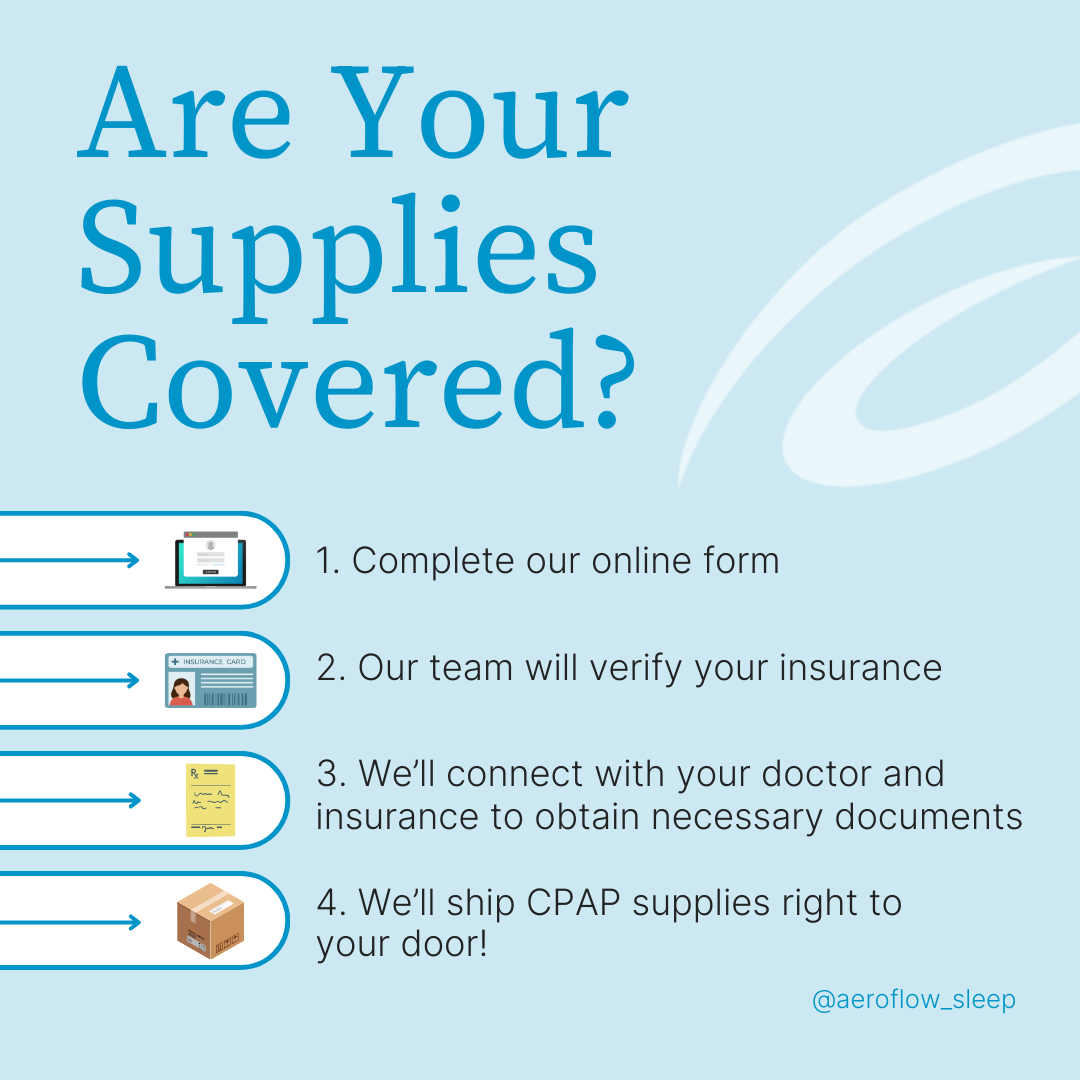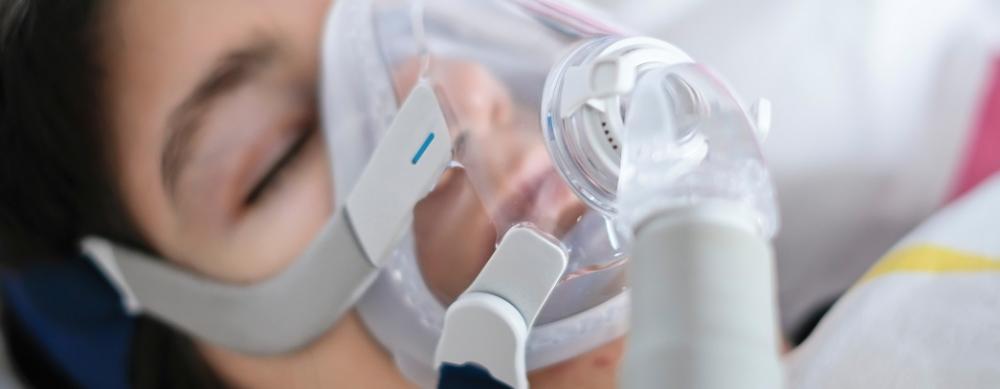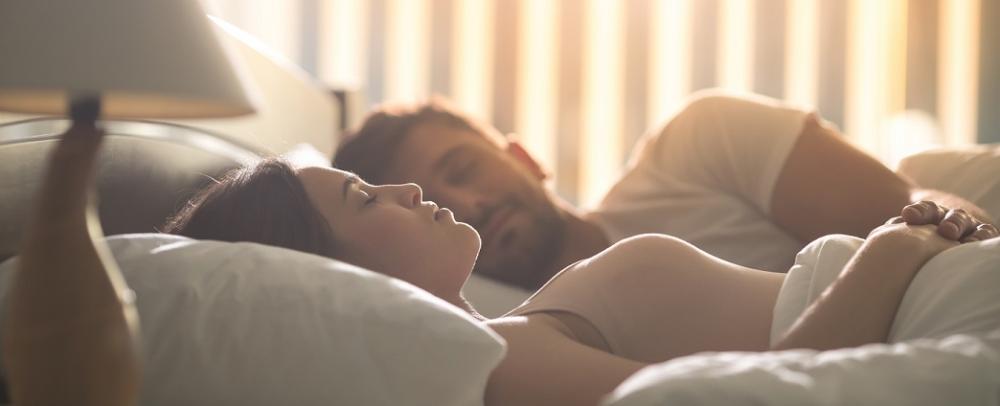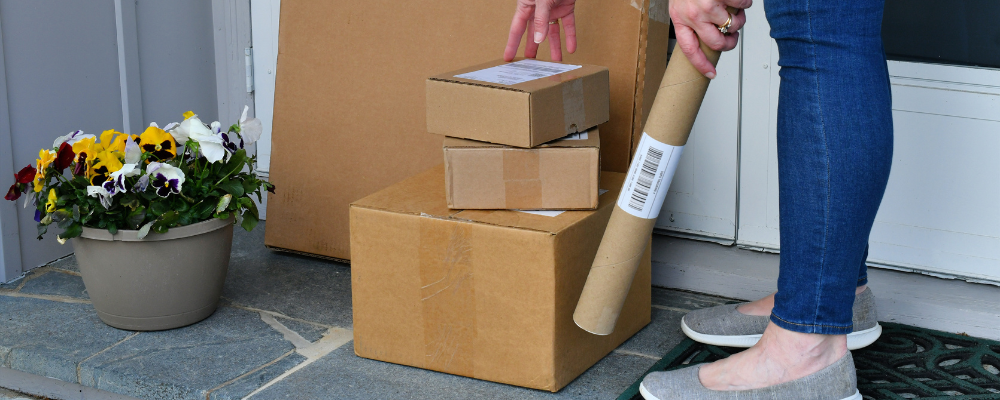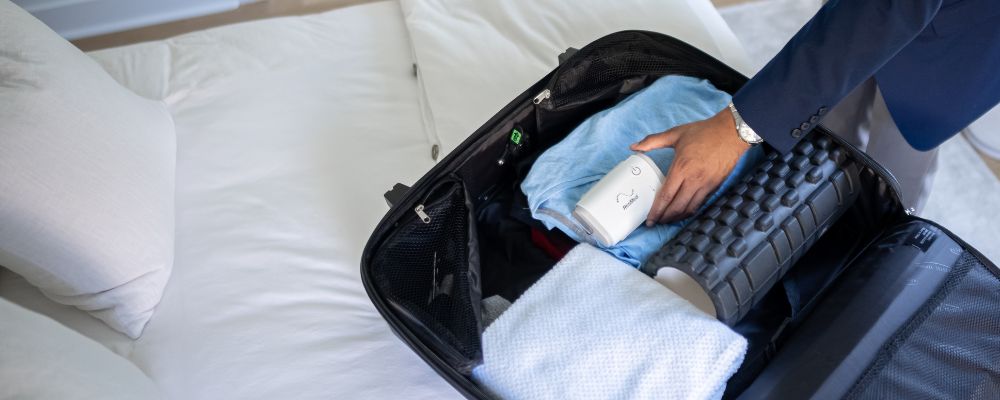If you have obstructive sleep apnea (or OSA,) it’s important that you get the treatment you need in order to achieve better sleep quality. Most sleep medicine experts recommend continuous positive airway pressure (or CPAP) as a treatment option. CPAP, which uses pressurized air to keep your airways open while sleeping, is a life-saving treatment. In fact, many CPAP users experience improvements in their snoring, sleepiness, and blood pressure after just 3 weeks of consistent use. But how much will this treatment cost you, and can your insurance help?
Can I Purchase A CPAP Machine On My Own?
The short answer is yes, you can purchase a CPAP machine out of pocket as long as you have a prescription. Since PAP therapy is a life-saving medical treatment, you must have a prescription that details the type of machine you need—CPAP, APAP, or BiPAP—as well as your necessary air pressure settings.
Be cautious; any retailer selling a CPAP device without requiring a prescription is likely not FDA-approved. You don't want to find one on Facebook Marketplace, but how do you get a prescription for CPAP therapy?
Start by paying your healthcare provider a visit! Your doctor will likely have you complete a sleep study, either in-lab or at-home. This sleep test will analyze your breathing patterns and help your doctor determine if you have a sleep disorder or not. If you have sleep apnea, your doctor will determine which sleep apnea treatment option is best for you and write your prescription accordingly.
How Much Do CPAP Machines Cost?
The average cost of a CPAP machine can range anywhere from $500 - $1,700. However, some BiPAP machines (or bilevel positive airway pressure) and APAP machines (or auto-adjusting machines) may exceed this cost range. Plus, it's important to keep in mind that this cost range is for a machine alone; it does not include the price for your mask and other necessary CPAP supplies.
How Much Will I Pay For CPAP Supplies?
Your CPAP mask can cost anywhere between $40 - $170 on average. In addition to your mask, you will need a CPAP hose (or tubing) to connect your mask to your machine; this is typically included with the purchase of your machine.
There are also extra supplies available that may not be essential to your sleep apnea needs, but they may make it easier for you to adjust to CPAP therapy. For example, while you don’t have to have a humidifier, it can help moisten your machine's airflow and reduce the likelihood for common side effects; such as a sore throat or dry mouth.
Even if you stick to just the basics, you must replace your supplies on a regular basis in order to maintain effective treatment. Unfortunately, if you’ve decided to purchase your supplies out of pocket, you will be responsible for these additional costs, too.
How long can you push your supplies before replacing them? The recommended timeline varies based on the product. Here is a quick breakdown of how often each item should be replaced and how much it typically costs:
- Replace disposable filters every 2 weeks for $1 to $10
- Replace nasal pillow or nasal mask cushions every 2 weeks for $10 to $75
- Replace full-face mask cushions once a month for $10 to $75
- Replace CPAP tubing every 3 months for $10 to $35 every 3 months; for heated tubing, this cost can range from $40 to $60
- Replace the CPAP mask frame every 3 months for $40 to $170
- Replace headgear every 6 months for $30 to $50
- Replace the humidifier every 6 months for $15 to $70
- Replace non-disposable filters every 6 months for $5 to $20
Put simply, when you purchase your CPAP supplies out of pocket, the costs start coming, and they don't stop coming. On the high-end, you're looking at upwards of $4,000 in a single year without purchasing or replacing a CPAP machine, which has to be done every 5 years.
Does Insurance Cover The Cost Of A CPAP Machine & Supplies?
We have good news; insurance will cover the cost of your CPAP machine and supplies! However, the amount of coverage depends on...
- Your specific insurance plan
- How much of your deductible you’ve met so far
- Your coinsurance rates
- Whether your CPAP provider is in-network with your insurance company
After you’ve met your deductible, you’ll probably have to continue paying your coinsurance, which is the remaining percentage insurance does not cover. While your insurance company likely covers most of the bill, Medicare (for example) only pays for 80%. You owe the remaining 20%, and that is your coinsurance. However, once you’ve hit your out-of-pocket maximum, your CPAP supplies will be covered at no cost to you for the remainder of the calendar year!
This is beneficial, because once you’ve met your deductible, most insurance providers (including Medicare) will cover a regular schedule of replacement CPAP supplies. They'll even cover a brand new CPAP machine!
Have more questions? Check out our "Understanding Your Bill" webpage via our online Resource Center.
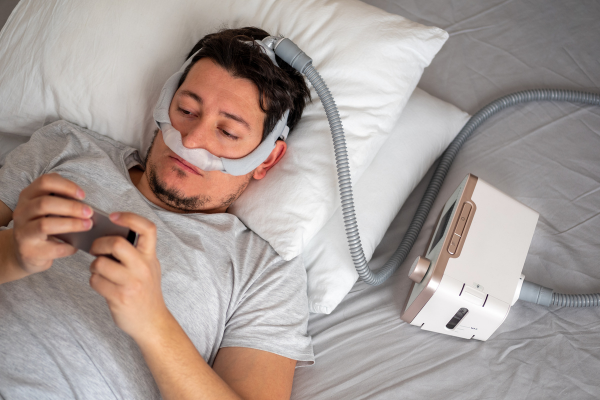

What Doesn't Insurance Cover?
While insurance will usually cover all or part of the cost of your CPAP machine and supplies, there are a few items that are not typically covered:
- Cleaning Supplies & Disinfectants
- CPAP Sanitizers
- Travel CPAP Machines
- CPAP Batteries
- Mask Liners
- Hose Holders
In short, isurance will not typically cover anything that is considered optional or a non-essential accessory. For cleaning, we recommend washing your supplies with warm water and mild dish detergent. But if you're trying to get your CPAP supplies covered through insurance, you've come to the right place!
Aeroflow Sleep is a durable medical equipment (or DME) provider that can help you get your supplies covered through insurance up to 100%. Even better, we work on your behalf to make this process as simple as possible. We are accredited by both Medicaid and Medicare, and we are in-network with most private insurance providers.
Start by simply filling out our online qualify form. We’ll let you know if your health insurance company is in-network with us and give you a free estimate based on your insurance coverage. Check your eligibility for a new PAP machine and/or supplies today!
References
Murez, Cara. “Have Sleep Apnea? CPAP Machine May Help Save Your Life.” U.S. News, U.S. News & World Report, 11 Sept. 2023, www.usnews.com/news/health-news/articles/2023-09-11/have-sleep-apnea-cpap-machine-may-help-save-your-life.
“Study Shows That CPAP Therapy Reduces Fatigue, Increases Energy in Patients with Sleep Apnea.” American Academy of Sleep Medicine, American Academy of Sleep Medicine, 21 Dec. 2010, aasm.org/study-shows-that-cpap-therapy-reduces-fatigue-increases-energy-in-patients-with-sleep-apnea/.
Kux, Leslie. “Classification of the Positive Airway Pressure Delivery System.” Federal Register, vol. 83, no. 203, 19 Oct. 2018, pp. 52964–52966, https://www.federalregister.gov/documents/2018/10/19/2018-22840/medical-devices-anesthesiology-devices-classification-of-the-positive-airway-pressure-delivery.



